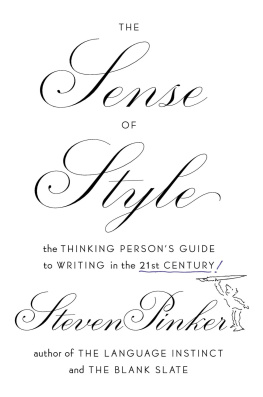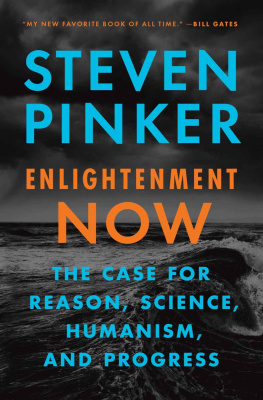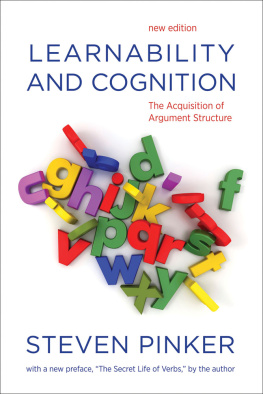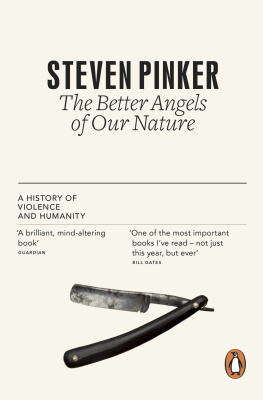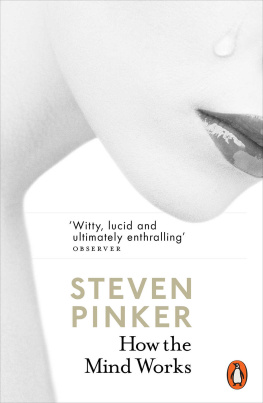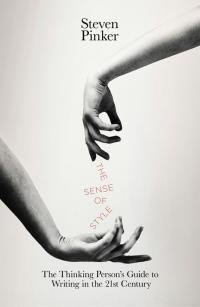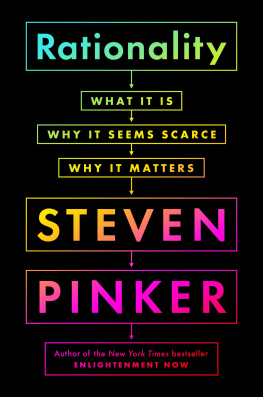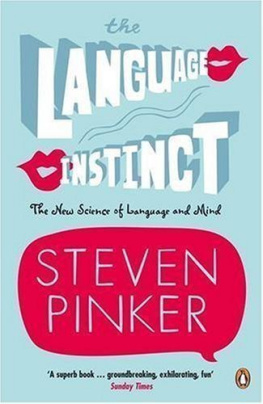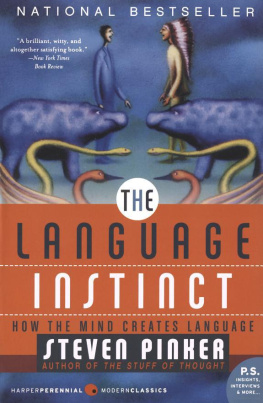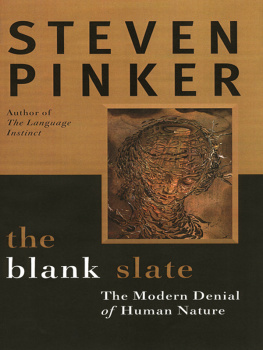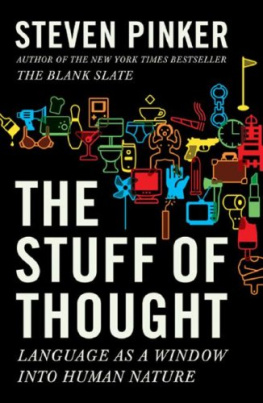Pinker - The sense of style : the thinking persons guide to writing in the 21st century
Here you can read online Pinker - The sense of style : the thinking persons guide to writing in the 21st century full text of the book (entire story) in english for free. Download pdf and epub, get meaning, cover and reviews about this ebook. year: 2014, publisher: Penguin Group US;Viking Adult, genre: Home and family. Description of the work, (preface) as well as reviews are available. Best literature library LitArk.com created for fans of good reading and offers a wide selection of genres:
Romance novel
Science fiction
Adventure
Detective
Science
History
Home and family
Prose
Art
Politics
Computer
Non-fiction
Religion
Business
Children
Humor
Choose a favorite category and find really read worthwhile books. Enjoy immersion in the world of imagination, feel the emotions of the characters or learn something new for yourself, make an fascinating discovery.
- Book:The sense of style : the thinking persons guide to writing in the 21st century
- Author:
- Publisher:Penguin Group US;Viking Adult
- Genre:
- Year:2014
- Rating:3 / 5
- Favourites:Add to favourites
- Your mark:
The sense of style : the thinking persons guide to writing in the 21st century: summary, description and annotation
We offer to read an annotation, description, summary or preface (depends on what the author of the book "The sense of style : the thinking persons guide to writing in the 21st century" wrote himself). If you haven't found the necessary information about the book — write in the comments, we will try to find it.
Pinker has a lot of ideas and sometimes controversial opinions about writing and in this entertaining and instructive book he rethinks the usage guide for the 21st century. Dont blame the internet, he says, good writing has always been hard. It requires imagination, taking pleasure in reading, overcoming the difficult we all have in imaging what its like to not know something we do know-- Read more...
Abstract: A short and entertaining book on the modern art of writing well by New York Times bestselling author Steven Pinker Why is so much writing so bad, and how can we make it better? Is the English language being corrupted by texting and social media? Do the kids today even care about good writing? Why should any of us care? In The Sense of Style, the bestselling linguist and cognitive scientist Steven Pinker answers these questions and more. Rethinking the usage guide for the 21st century, Pinker doesnt carp about the decline of language or recycle pet peeves from the rulebooks of a century ago. Instead, he applies insights from the sciences of language and mind to the challenge of crafting clear, coherent, and stylish prose. In this short, cheerful, and eminently practical book, Pinker shows how writing depends on imagination, empathy, coherence, grammatical knowhow,and an ability to savor and reverse-engineer the good prose of others. He replaces dogma about usage with reason and evidence, allowing writers and editors to apply the guidelines judiciously, rather than robotically, being mindful of what they are designed to accomplish. Filled with examples of great and gruesome prose, Pinker shows us how the art of writing can be a form of pleasurable mastery and a fascinating intellectual topic in its own right--
Pinker has a lot of ideas and sometimes controversial opinions about writing and in this entertaining and instructive book he rethinks the usage guide for the 21st century. Dont blame the internet, he says, good writing has always been hard. It requires imagination, taking pleasure in reading, overcoming the difficult we all have in imaging what its like to not know something we do know
Pinker: author's other books
Who wrote The sense of style : the thinking persons guide to writing in the 21st century? Find out the surname, the name of the author of the book and a list of all author's works by series.

